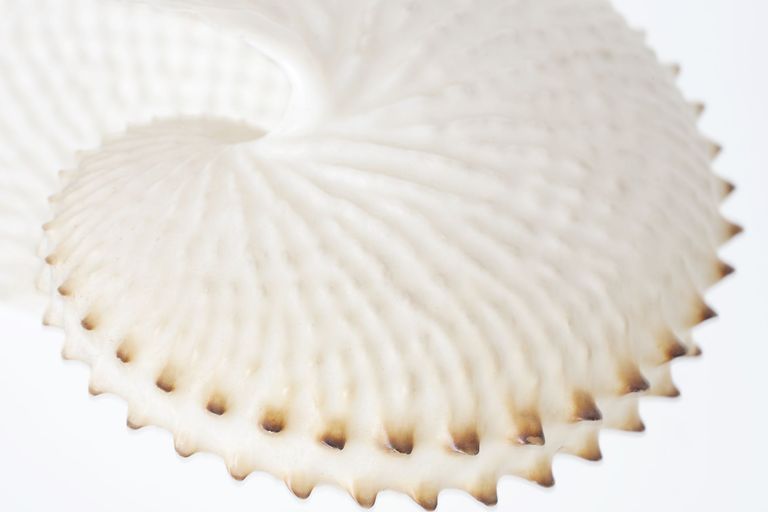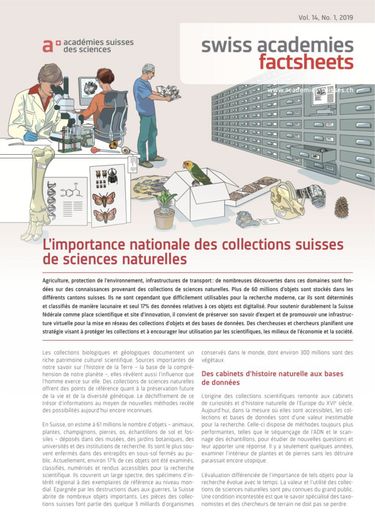Temi associati

Appel à projets pour la meilleure accessibilité des collections d'histoire naturelle
Les musées, jardins botaniques et universités suisses peuvent soumettre des projets au Réseau suisse des collections d'histoire naturelle (SwissCollNet) afin d'améliorer l’ accessibilité et la numérisation de leurs collections de sciences naturelles.
Immagine: Lisa Schäublin / NM Bern
L’importance nationale des collections suisses de sciences naturelles
Agriculture, protection de l’environnement, infrastructures de transport : de nombreuses découvertes dans ces domaines sont fondées sur des connaissances provenant des collections de sciences naturelles. Plus de 60 millions d’objets sont stockés dans les différents cantons suisses. Ils ne sont cependant que difficilement utilisables pour la recherche moderne, car ils sont déterminés et classifiés de manière lacunaire et seul 17% des données relatives à ces objets est digitalisé. Pour soutenir durablement la Suisse fédérale comme place scientifique et site d’innovation, il convient de préserver son savoir d’expert et de promouvoir une infrastructure virtuelle pour la mise en réseau des collections d’objets et des bases de données. Des chercheuses et chercheurs planifient une stratégie visant à protéger les collections et à encourager leur utilisation par les scientifiques, les milieux de l’économie et la société.
National significance of natural history collections in Switzerland
Biological and geoscience collections form an important part of our rich scientific heritage and provide the basis for much of what we know today about our planet and how we humans have influenced it. Natural history collections help us to understand our past and present better, thereby providing a basis for predicting the future. They also serve as biobanks for preserving the Earth’s organismic and genomic diversity, and must not only be maintained, but also supplemented so that scientists can continue to document and explore life on Earth. As new investigative techniques emerge, we can discover more from studying such intact and well-preserved collections.
Immagine: Akademien Schweiz

